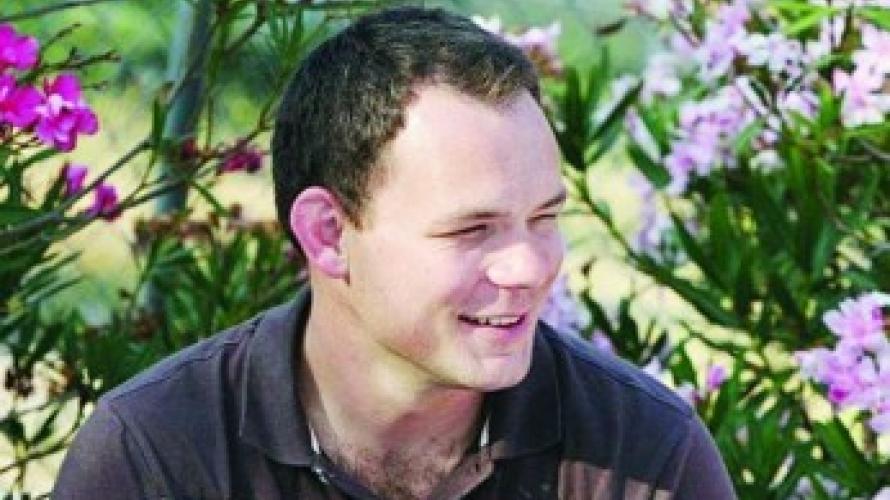
 Brian D'Ambrosio is a writer/editor living in Missoula, Montana. D'Ambrosio is the author of more than 300 articles and five books related to Montana history, people, and travel.
Brian D'Ambrosio is a writer/editor living in Missoula, Montana. D'Ambrosio is the author of more than 300 articles and five books related to Montana history, people, and travel.
*****************
Dr. Shane Truman Todd's body was found in his Singapore apartment on June 24, 2012. Contrary to evidence provided by his family, police have maintained he killed himself.
Todd's parents, Rick and Mary Todd, of Marion, Montana, have said repeatedly that they believe he may have been murdered over his research in the U.S. into material used to make semiconductors, a technology with both civilian and military purposes.
The couple had visited Singapore after Shane's death to try to puzzle together what had happened – and soon discovered disquieting contradictions between the scene at Shane's apartment and accounts by Singapore police. As they were leaving, they discovered the backup hard drive for one of the laptops Singapore police had accessed.
A number of files included technical requirements for a joint research project between the Singapore government-backed research lab Todd worked for, the Institute of Microelectronics (IME), and Huawei Technologies, a China-based electronics and telecom giant. The project was geared toward making GaN power amplifier chips. (Last fall, a report by the House Select Committee on Intelligence proclaimed Huawei to be a threat to U.S. national security).
The sheer thought of Shane committing suicide is preposterous, say Shane’s parents.
“I believe 100 percent that there is a major cover-up going on,” says Mary Todd. “There is a not a shred of evidence that he committed suicide. Shane had a great girlfriend (who discovered his body), and he was an all-around amazing person, a lover of life. Singapore, China, and the United States want to keep our story quiet. The truth bears no value in Singapore.”
The Todds contend that Shane’s alleged suicide note contained false, inaccurate information, referenced events that never happened, and had to have been written by someone other than Shane.
“This suicide note even thanked IME,” says Mary.
That note has recently been determined to most likely be a forgery – the effort of someone “raised and socialized in a different culture,” according to criminologist David A. Camp.
“Everything about the suicide note was different,” writes Camp. “Different format, different cultural backgrounds, different wording, different sentence length, everything about it was completely different, which leads to one conclusion; someone else wrote it.”
When questioned by government lawyers why police had not ordered an additional investigation of the apartment, Singapore police responded that “a preliminary assessment” pointed to suicide and concluded there were “no signs of foul play.” According to CBS News, Singapore police acknowledge that they violated police protocols by accessing a personal laptop at a crime scene. A police spokesman said that officials had found the password on a nearby post-it note.
Police said they made an "operational decision" to examine Shane's laptop because the note containing the password "was left there for a reason.” His laptop and cell phone, instead of being turned over to forensic technology specialists, were accessed by police.
State counsel presented evidence of links to suicide websites on Shane's laptop and suicide letters written to family members and loved ones. The Todds believe that these searches were conducted after Shane died and that the suicide letters are bogus.
Similar Cases
Mary Todd says that she has heard from other parents of Americans who believe that their children had been murdered in Singapore and China. In one case, she says, an American teacher in China, who questioned some of the country’s labor practices, mysteriously ended up dead. The Chinese government said he was hit by a car; the autopsy revealed that he had been strangled.
“It’s heartbreaking,” says Mary. “But there are many similar cases.”
Washing and Packing His Clothes At Time of Death
The Todds have claimed their 31-year-old son expressed reservations about his safety before he died.
"He started calling us and saying that his life was being threatened,” says Mary, “And he said that he felt he was being asked to compromise U.S. security.”
In January 2012, immediately after he returned to Singapore from a trip to New Jersey, Mary Todd says that Shane told his parents he was being grilled at work not just by his own IME scientific team, but “separately and intensely by a set of Chinese businessmen”. She says he was upset because he was being “pumped for information about this technology by people he didn't really know,” and that they would probe him with questions and “then speak to each other in Mandarin about his responses."
Come the end of February 2012, Todd told his parents that he was quitting IME and supplying 60 days' notice. But he agreed to remain a month longer because, Mary says, “he was the only person qualified on the specialized GaN-wafer-making reactors made by Veeco.”
“At the time of his death,” says Mary, “Shane had recently accepted a new job offer, had purchased his plane ticket back to Montana, and was in the process of washing and packing his clothes.”
Huawei
The Todds say that the hard drive they found in their son's apartment contained thousands of documents he had backed up from his work computer. After having it studied by a computer forensics expert, they found a draft of a project plan between Shane’s former employer IEM and Huawei detailing the progress of a device that utilized gallium nitride.
Gallium nitride has civilian uses in products like LED screens and cell phone towers, and military functions in things like radar and satellite systems. Todd had been trained in the U.S. on proprietary equipment that produces the material; gallium nitride is restricted for export because of the potential military uses.
“The reason that his case has gained international attention is because Huawei had been stealing technology,” says Mary. “That’s why this case has been national. It’s not because of us or Shane. That’s false. We clandestinely found this information. Before the (Financial Times) article about Shane’s death hit, we had written congressmen, senators, and Homeland Security, but nobody responded. There is much more to this story than a family who has lost son.”
To impartial observers, the 1,000 project files on Todd's hard drive raise many questions. Perhaps most alarming is that the project appeared to have unmistakable military uses, say those who have viewed the files.
"If the Chinese get a chip like this it would give them an order of magnitude increase in the capability of their radar systems," Bernard "Bud" Cole, a retired US Navy captain and China military expert at the National War College, told The Associated Press. "It would increase Chinese ability to detect incoming aircraft and missiles and enhance their capabilities at sea with shipborne radar."
Tester, Baucus Push Hard
The coroner's inquiry into Todd's death ended messily. Todd family lawyers were not present in court because they had been dismissed by Todd's parents, who left Singapore after withdrawing from the inquest, saying they had no confidence in Singapore’s legal process.
"We no longer have confidence in the transparency and the fairness of the system," the Todds said in a statement released to the press. "It appears to us that the outcome has been predetermined."
The Todds have received support and assistance in the case from Montana’s democratic senators Max Baucus and Jon Tester.
“We are fighting without the support from our government,” says Mary. “Baucus and Tester have pushed hard on our behalf.”
Huawei has said it had “no cooperation” with the Institute of Microelectronics related to gallium nitride. IME has said neither Todd nor the company was involved in any classified research.
A Huawei spokeswoman told The Associated Press that the company "does not do military equipment or technology nor do we discuss it with partners."
“Implications are Humongous.”
The Todds – who have been married for 36 years and raised four kids – have said that their next course of action will be to urge a U.S. congressional investigation into their son's death. “The implications are humongous. It’s frightening.”
Mary Todd says that she and her husband were pessimistic about their chances of finding justice in Singapore’s “dictatorial system,” and that they both worried about being thrown in a Singaporean jail on "trumped-up charges."
“We’ve come up against evil,” says Mary. “We have come up against some really evil, really bad, super insidious things. Right now, it all feels extremely dark. But because of all of the press, we are less nervous than we would be right now otherwise.”
--
